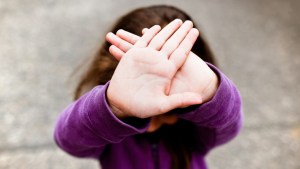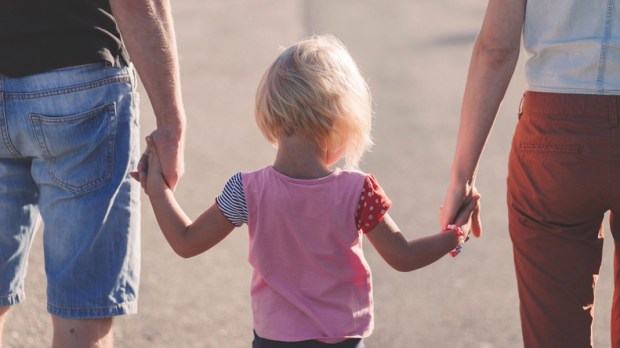Every child has the right to be protected from all forms of abuse and sexual violence. While the duty to ensure the protection of children is shared by all of society and by all institutions that deal with children, parents have a primary responsibility for their safety. Here are some things parents can do to help their children avoid or successfully escape dangerous situations.
1Talk to them about the beauty of their body
This should be communicated without taboos, with modesty, delicacy and wonder. It’s important to explain to your child, “You don’t have a body, you are a body.” In other words, they need to understand the unity between body and soul; that they are good and have dignity in their very being, and should be respected in all aspects of their person.
2It's your body, and no one has the right to touch it
This recommendation should be repeated often when a child is small, knowing that this also applies to kisses and cuddles. While politeness may require a child to say “hello” or “thank you,” a child should never be forced to kiss or hug anyone, including a relative.
3Teach them to recognize and name their emotions
The more children are connected to what they feel, the more they will know how to listen to what is happening inside them, and the more likely they will be able to detect a dangerous person in their environment through the negative “feeling” they experience..To get away from it, your child should know they can say “no” and get help.
4Teach an anti-abuse motto at home
“Say no. Run away. Tell someone about it.” This motto is simple and effective, and children should even memorize it. It allows them, in the event of a borderline situation, to put it into practice without the need to think.
5Teach them a clear safety plan
Where and to whom should your child turn in case of problems? Discuss the subject with them to help find the right solution for them. For older children, come up with a “safety plan.” They should have contacts they can turn to for help easily and quickly.
6Emphasize the importance of body language
Help your child’s self-confidence by learning and practicing confident body language. This will allow them to convey a confident attitude, which may help deter some abusers from choosing them as a target. They also need to be aware of other people’s body language, and know the signs of when they should stay away from someone.
7Teach them to defend their boundaries
Sexual abuse is a type of unwanted physical contact. If children can put an end to unwanted non-sexual physical contact in smaller things—even if it’s by a close or “trusted” person—he or she can more easily defend against sexual physical contact.
8Regularly practice role-playing activities
Practice, for example, saying a strong, clear “no” — calmly, firmly, decisively and without offering justification. Arguing with the aggressor prolongs contact and allows him or her to provide possible arguments.
9Build trust and confidence
Children must know that they can speak, be listened to, and above all be believed. Even if children lie or distort the truth on occasion about some topics, it’s essential to create a trusting climate so they are comfortable coming to you with problems. Adults should take children’s complaints on these matters very seriously and take action to discern, investigate, and follow up appropriately.
10Stay cautious
Some adults may worry us, even when they are part of the family, our church, the school, or a sports program. If you aren’t sure you trust a person, don’t hesitate to share your concerns and/or remove your child from the program. Be vigilant about the adults to whom your children are entrusted. Trust your intuition. It is better to be careful than not careful enough.
11Pray to your children’s guardian angel
Be attentive to your children’s safety at all times. Entrust them to divine protection and ask their guardian angel to watch over them: “Holy Angel of God, keep my children safe from all danger of body and soul.”
12The “no” card
Print a pocket-sized card for your child with the phone number of the police and of your local child abuse hotline. Explain to them what it’s for, and the seriousness of the matter—that the numbers aren’t something to use lightly, but that they shouldn’t be afraid to use them either, if they feel threatened.
13Tell them it’s not their fault
Children need to know that, no matter what anyone tells them, they are in no way responsible for being “groomed” for attempted or successful abuse. They need to know they can say “no” at any time, the moment they recognize they’re in a bad situation, and that they can report it freely, without shame or guilt.
We can’t keep our children safe from every possible danger, but by taking measures like those listed here, we can help them to be more prepared to deal with some of the hazards they may face.
This article was written with the help of a mother of an abused child, Dr. Jaquet-Chiffelle, who herself was a victim of rape.

Read more:
A smart and effective way to protect kids from sexual predators

Read more:
Abuse survivor has a message for other victims: You are not alone

